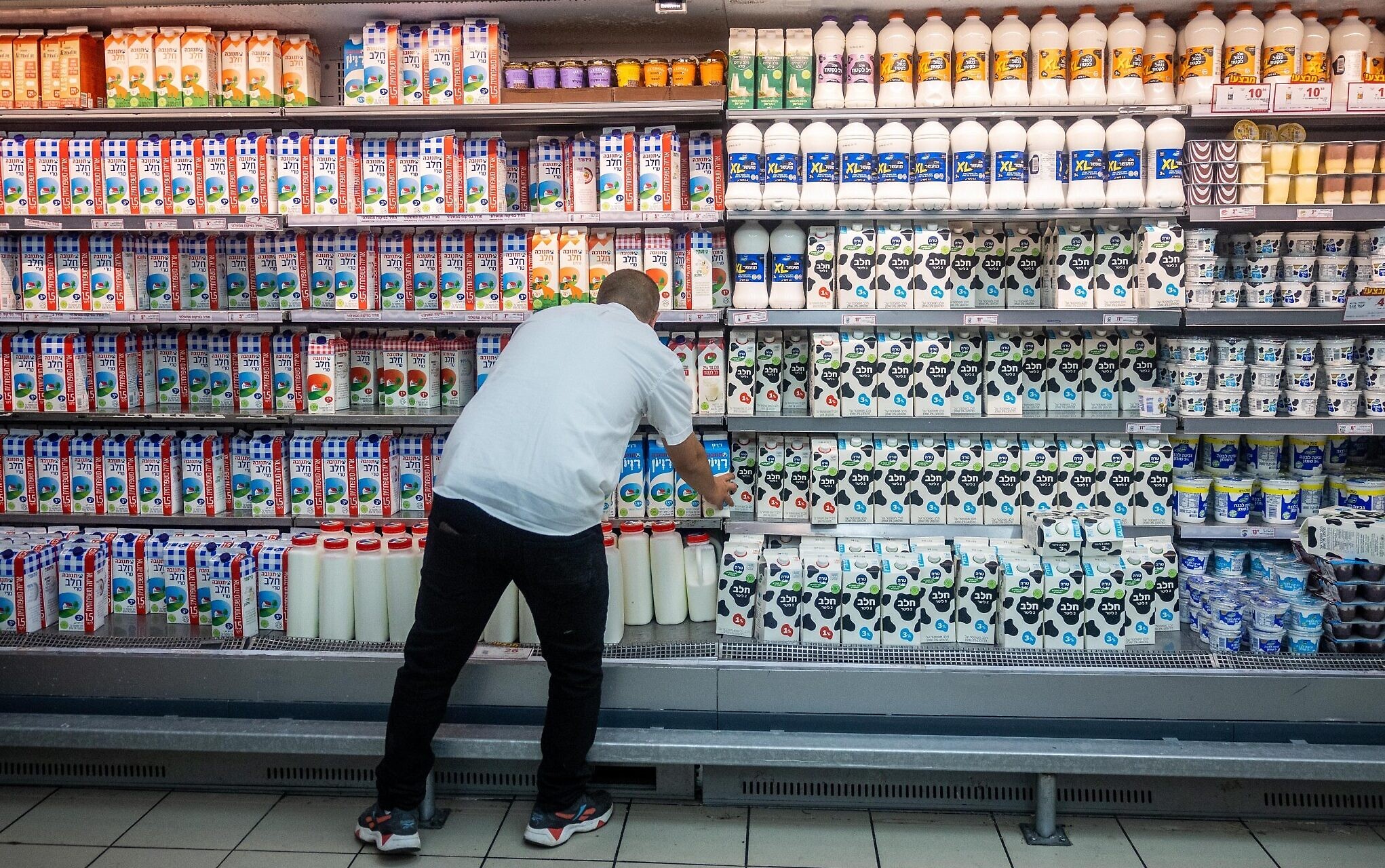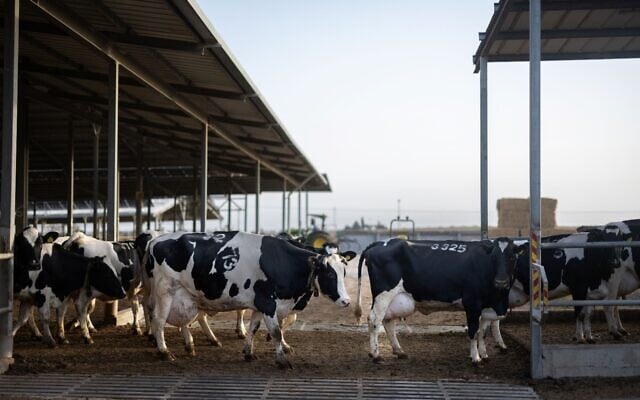


Finance Minister Bezalel Smotrich is expected to sign an order next week to slash the customs duty on imported milk for a period of six months to prevent a shortage of the dairy product in retail stores and supermarket chains during the upcoming Jewish High Holidays, and in another attempt to help lower prices.
The order will remove the up to 40 percent customs tax currently levied on natural cow’s milk, effective until February 28, 2026, to meet the increased demand during the holiday period and ensure a continuous supply.
The High Holidays — Rosh Hashanah, Yom Kippur, Sukkot and Shemini Atzeret-Simchat Torah — starting next month will fall or begin in the middle of the week, shutting production down for a total of nine working days, according to the Agriculture Ministry. As a result, about six million liters of raw milk will not be processed, the ministry estimated. This drop in production, along with the increased demand, are expected to exacerbate milk shortages for consumers.
Over the past two years, the Finance Ministry has repeatedly lifted the customs tax on imported milk in an attempt to increase supply, encourage competition, and help lower prices for Israelis, who are struggling with a high cost of living during the challenging war period. Israel regulates the price of a number of key locally produced dairy products, including milk, soft white cheese, and basic bread, which are more expensive than in European countries.
In the latest wave of price hikes, the government in May decided to raise the prices of state-regulated dairy products, including milk, by an average 1.41%.
“This is another milestone in our ongoing fight against the cost of living,” Smotrich vowed. “We are removing barriers and tariffs to increase competition — this way we will ensure that there is enough milk at a fair price.”
“When you increase competition, there is more supply and prices go down,” he added.
However, the Finance Ministry has not shown whether the repeated temporary orders lifting the customs tax on milk over the past two years were effective in luring more players to the dairy product market. There are economic and logistical obstacles to importing milk for a limited time, especially during a war, in addition to the added costs of transportation and kosher certification.
Israeli Cattle Breeders’ Association (ICBA) director Dagan Yarel denounced Smotrich’s decision.
“It has nothing to do with food security for Israelis or the challenges during the war period,” said Yarel. “We proposed alternatives for the holiday period to avert a local milk shortage due to kashrut restrictions, such as letting non-Jews work at the dairies during the holidays, but these were not even accepted.”
“Instead, the government prefers to harm dairy farmers around Gaza and the northern border, and reward dairy farmers in Poland– a country where Jews are being attacked by antisemites in the Auschwitz concentration camp,” he fumed.
Previously, regular milk was reportedly imported from Poland by Rami Levy, one of the country’s largest supermarket chains.
The move to lift the tariff comes after Agriculture Minister Avi Dichter last week urged Smotrich to sign a temporary order to cancel the customs duty on imported milk from September 28 for seven weeks to meet peak demand and avert shortages during the upcoming Jewish holiday season.
“The temporary and controlled opening of the market to imports is intended to provide a solution to the expected local shortage, ensure continuity in the supply of milk to the public, and prevent harm to consumers, without harming the local industry in the long-term,” the ministry said.
Meanwhile, the Agriculture Ministry also emphasized that there was no shortage of raw milk produced at dairy farms.
“On the contrary, dairy farms meet quotas and demand and even produce above demand (about 106%),” said the ministry. “However, during the Jewish holiday period every year, there is a sharp decline in production capacity at dairy farms, due to a decline in working days and the closure of dairies on Sabbaths and holidays [in compliance with kashrut requirements].”
Dairy prices in Israel are a sensitive issue and have sparked reactions that often snowball into mass demonstrations against the high cost of living. In 2011, the so-called cottage cheese protest sparked weeks of social unrest, resulting in supermarkets lowering the price of dairy goods alongside policy reforms aimed at lowering consumer costs.



